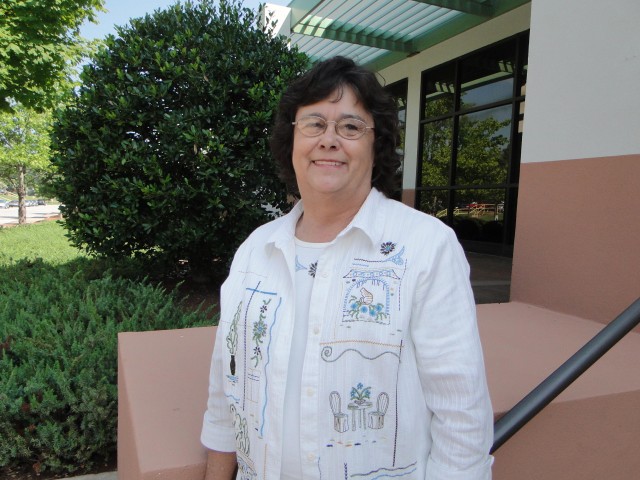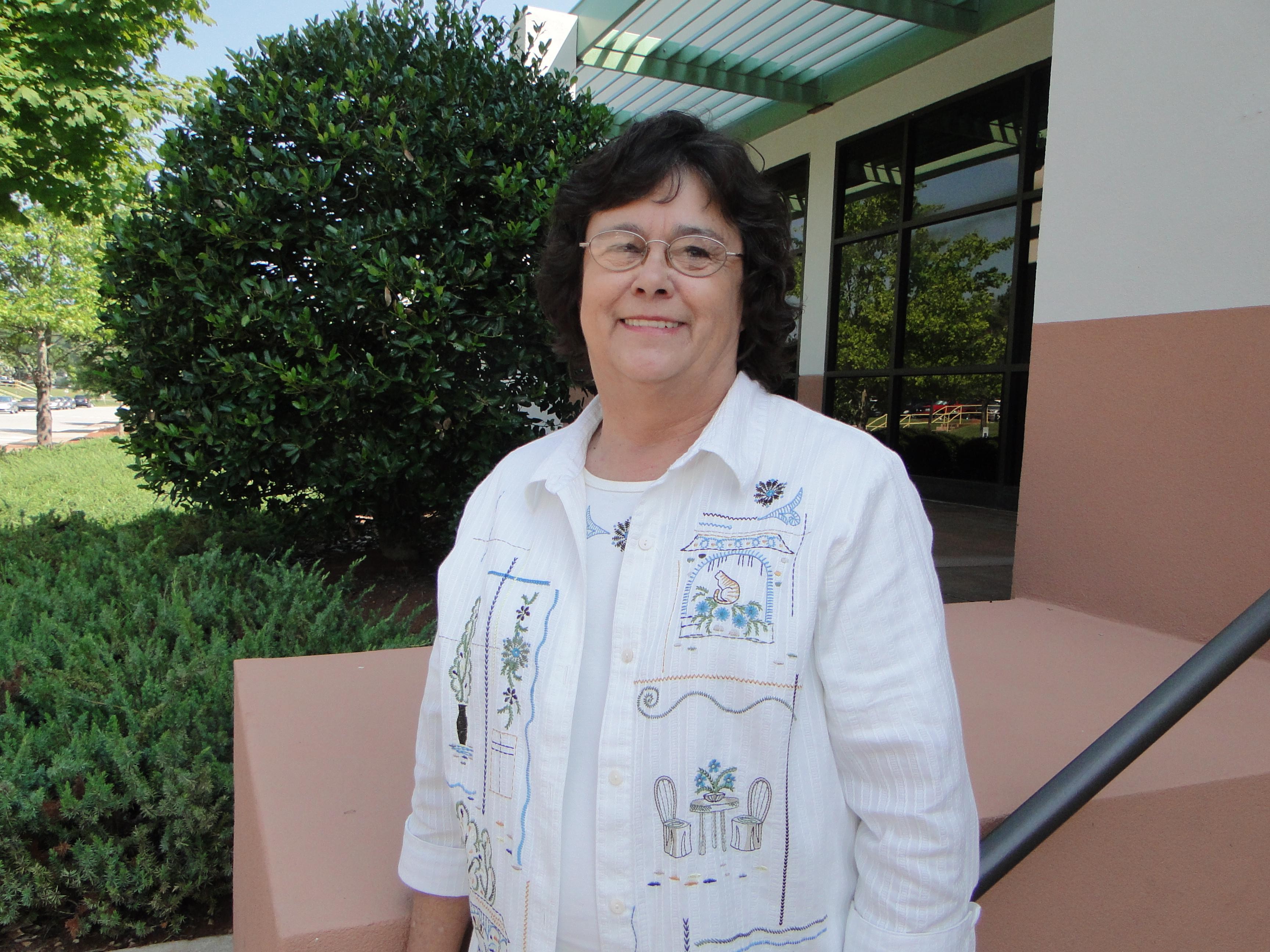
Pat Cross has gone from telephone operator to motor vehicle operator to administrative assistant in her 35 years of employment with the Department of Defense.
And, along the way, she has ridden in a Huey helicopter and a tank, taken a maiden dependent voyage on the U.S.S. Aubrey Fitch, and helped make a difference as a member of the Civilian Welfare Fund Council and an executive with the Combined Federal Campaign.
She has also managed to break through a few glass ceilings that, at the time, she didn't even know were there.
"My dad was retired civil service, so working as a civil servant just seemed the natural thing for me to do," she said.
Now this longtime federal employee is retiring to spend time with her three children and four grandchildren, get more involved in her church and civitan club in Fayetteville, Tenn., and participate in the Wings of Love ministry that assists unwed mothers. Today is her last official day working as an administrative assistant with the Program Executive Office for Aviation.
Cross began her DoD career in 1973 at age 23, working as a telephone operator at the Naval Air Station at Cecil Field in Jacksonville, Fla.
"When I worked as a telephone operator, every phone call came through the operator at the naval base," Cross said. "The population on a naval base can increase and decrease practically overnight by a thousand people because of ships coming and going. So things could get quite hectic."
But the job was rewarding - and the kind of job that was open to women in those days. After Cecil Field modernized its telephone system, Cross transferred to the Naval Station Mayport in Florida, where she worked as an operator for 10 years.
It was at the Mayport station that Cross broke through her first glass ceiling.
"I became a motor vehicle operator. I was the first female motor vehicle operator since World War II," she said.
"When I started, I ran the parts truck back and forth to get parts. But they taught me how to drive a lot of different vehicles. I drove a street sweeper, dump truck and a bus. I transported Soldiers around the base in a bus."
She was once teased by her male co-workers who didn't think she could drive a 2 1/ 2 ton cargo truck to downtown Jacksonville to pick up three barrels of oil.
"But I did it," Cross said. "It was 20 miles there and 20 miles back. And I did it."
Those were the days when relationships between men and women in the workplace were more relaxed. Cross didn't mind that her male co-workers watched out for her, joked around with her and offered extra help when she needed it.
"I was very fortunate in that the drivers, mechanics and transportation officers - all these men - treated me like a sister or a daughter," she said. "They were supportive. They were absolutely wonderful to me."
But an on-the-job injury took Cross back to being a telephone operator. She then applied for an upward mobility position and became a transportation clerk typist.
"I took a lot of correspondence courses. I studied really hard and I qualified as a shipment clerk," Cross said of her next job. She then worked as a claims examiner in Mayport's transportation office, remaining there for 16 years. At her third naval station - Naval Air Station Jacksonville - Cross also worked as a claims examiner.
It didn't bother Cross that she was often working in areas where women hardly went.
"I would go aboard ships to get supply documents signed at a time when women weren't allowed on anything but the tug boats," she said. "I once had to be a bus driver for members of the Chinese Navy at a time when women in China were not allowed to drive. When I sat in the driver's seat, the entire bus got quiet. I had to drive them across a bridge that spanned 60 feet up in the air. They thought I was going to kill them.
"I was working for the government at a time when they were allowing women to apply for jobs that were up to then only open to men."
In 1985, with no job guaranteed, Cross and her husband moved with their two children to Fayetteville, where they had relatives. In 1986, Cross became a lead procurement clerk at Redstone Arsenal. During the next 10 years, she worked as a claims clerk in the Legal Department, and also worked jobs as a secretary and housing inspector.
After moving to the Tennessee Valley, Cross had a third child. But she soon resumed her career with DoD.
"Civil service is a wonderful place for a mother to work, especially a young mother, because the government benefits of sick time and leave time make it easier," she said.
About five years ago, Cross transferred to the PEO Aviation, where she has worked as an administrative assistant.
"I have loved working for PEO Aviation. The people are wonderful and they are the best at what they do," she said. "My most rewarding job was as an administrative assistant for Kiowa because of the people and the teamwork."
Cross is retiring with several awards and accolades she's earned in her years of working in non-traditional jobs. But it's the people that she will remember the most.
"The people are what I cherish the most from my career," she said. "I have made some outstanding friendships over the years that will stand the test of time."

Social Sharing